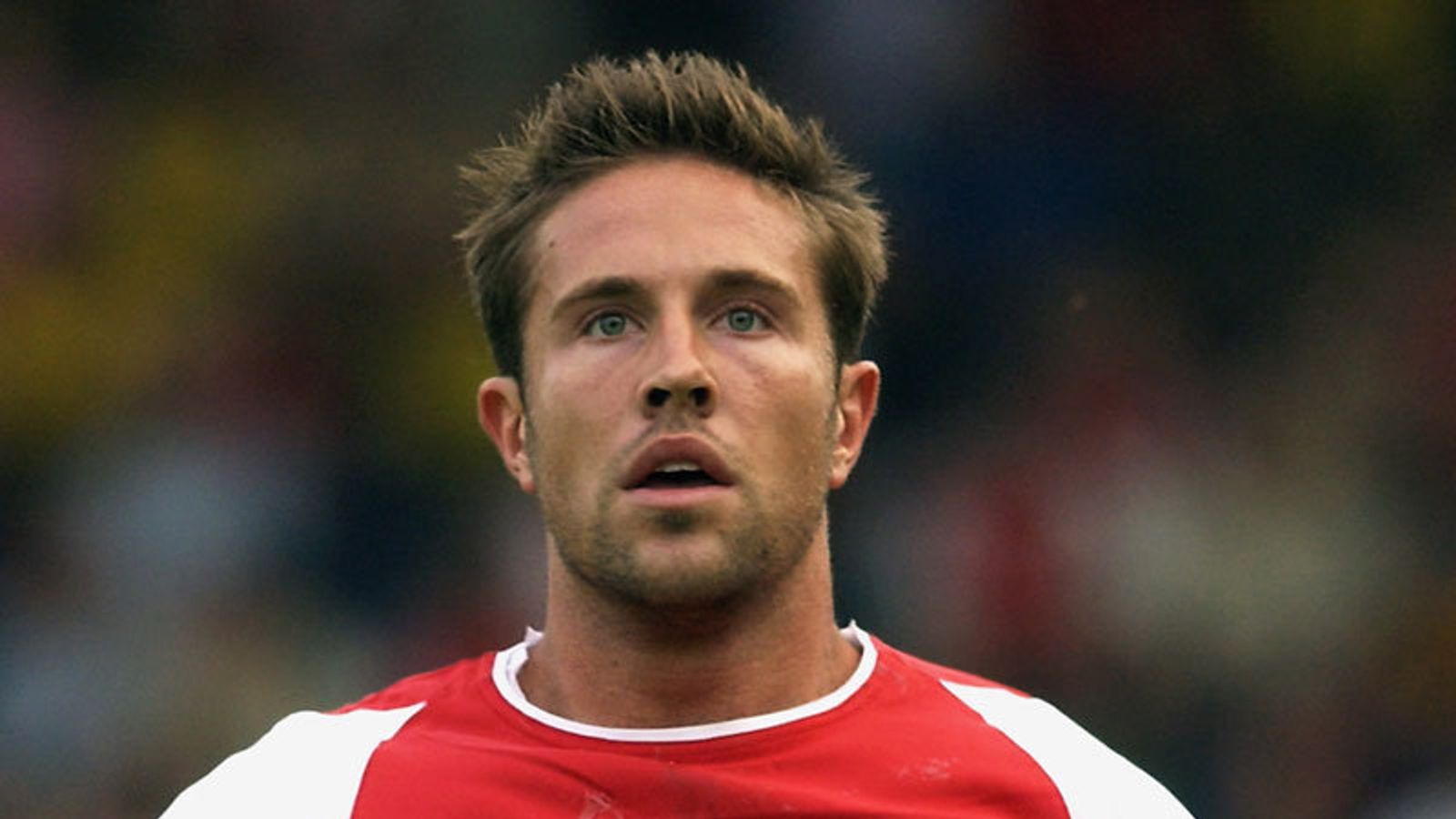
Matthew James Upson
Date of birth: 18 April 1979
Place of birth: Eye, England
Nationality: English 🏴
Height: 6 ft 1 in (1.85 m)
Position(s): Centre back
Arsenal Senior Career: 1997-2003
Senior Apps/Goals: 57/0
General Information
Matthew Upson (born 18 April 1979) is a retired English professional footballer who played as a centre-back. Known for his aerial dominance, composure, and positional intelligence, Upson enjoyed a long career in the Premier League and represented England at international level. Although his early years at Arsenal were hampered by injuries and competition for places, Upson went on to establish himself as a reliable defender at several clubs, most notably Birmingham City and West Ham United. His career is a testament to perseverance, resilience, and the ability to adapt in one of football’s most demanding positions.
Early Life and Youth Career
Born in Hartismere, Suffolk, Upson’s love for football was evident from an early age. Tall, athletic, and naturally gifted in defensive roles, he developed his game at local youth levels before attracting the attention of scouts. Upson joined Luton Town’s youth academy, where his maturity and defensive intelligence stood out. His leadership qualities and consistency earned him opportunities in England’s youth setups, and it was not long before bigger clubs came calling.
Arsenal Years (1997–2003)
In 1997, Upson made a high-profile move to Arsenal, then one of England’s dominant forces under Arsène Wenger. Arsenal saw him as a potential long-term successor to the likes of Tony Adams, Steve Bould, and Martin Keown. However, breaking into the first team proved extremely challenging. Injuries disrupted his progress, and Arsenal’s wealth of defensive options limited his opportunities.
Despite this, Upson contributed during cup competitions and occasional Premier League appearances. He was part of the wider squad during Arsenal’s successful late-1990s and early-2000s period, witnessing firsthand the culture of professionalism and tactical excellence that defined Wenger’s sides. While he never fully cemented himself as a first-team regular at Highbury, his experiences at Arsenal shaped his mentality and prepared him for future success.
Loan Spells and Development
During his Arsenal years, Upson had several loan spells to gain vital first-team experience. He featured for clubs such as Nottingham Forest and Crystal Palace, where he gained match sharpness and confidence. These stints allowed him to refine his defensive skills—particularly his ability to marshal a back line, command aerial battles, and read opposition strikers.
It was during this period that Upson began to build a reputation as a defender with calmness under pressure, coupled with a strong work ethic and an eagerness to learn. However, persistent injuries remained a frustration, and by 2003 it was clear that Upson needed regular football elsewhere to fulfill his potential.
Birmingham City (2003–2007)
Upson’s move to Birmingham City proved transformative. Signed by manager Steve Bruce, he became the cornerstone of Birmingham’s defense. Upson’s aerial strength, tackling precision, and leadership qualities made him a fan favorite. His consistency in the Premier League showcased the player Arsenal had hoped he would become, and his performances began to attract interest from larger clubs.
During his Birmingham spell, Upson matured into a leader both on and off the pitch. He captained the side on occasion and developed a reputation as one of the league’s most dependable centre-backs. Although Birmingham experienced relegation struggles, Upson’s personal performances remained a highlight, furthering his case for international recognition.
West Ham United and England Recognition (2007–2011)
In 2007, Upson signed for West Ham United, where he continued to excel. His presence brought stability to the Hammers’ defense, and he quickly became a key figure within the squad. Appointed club captain, Upson embodied professionalism and resilience. His leadership during difficult periods, particularly when West Ham battled relegation, highlighted his influence beyond mere defensive duties.
It was also during his West Ham tenure that Upson earned consistent recognition at international level. He made his England debut in 2003 but became a regular squad member during the late 2000s. Upson represented England at the 2010 FIFA World Cup in South Africa, famously scoring a header against Germany in the round of 16. Although England lost 4–1, Upson’s goal remains one of the standout moments of his international career.
Later Career
After leaving West Ham, Upson continued to ply his trade in the Premier League and Championship with clubs including Stoke City, Brighton & Hove Albion, and Leicester City. While age and injuries gradually limited his pace and physical sharpness, Upson’s reading of the game and leadership qualities remained valuable assets. He eventually retired in 2016, concluding a career that spanned nearly two decades at the professional level.
Playing Style
Upson was a traditional English centre-back: strong in the air, disciplined in positioning, and calm on the ball. While not the quickest, his anticipation and ability to marshal defensive lines compensated for any lack of outright pace. He excelled in one-on-one duels and was a consistent threat at set pieces, both defensively and offensively. His leadership qualities, professionalism, and reliability made him a trusted figure in every squad he joined.
Legacy and Impact
Though he never became the star Arsenal had initially envisioned, Matthew Upson carved out a highly respectable career. He demonstrated resilience by overcoming injuries and setbacks, proving himself across multiple Premier League clubs. His journey reflects the reality faced by many professionals: early promise, challenges at elite clubs, and eventual fulfillment through persistence and adaptability.
Upson remains respected in English football circles for his professionalism, leadership, and commitment to the game. His career serves as an example of how players can thrive by finding the right environment and making the most of opportunities, even when initial pathways seem blocked.
| Season | Appearances | Goals |
| 1997/98 | 8 | 0 |
| 1998/99 | 9 | 0 |
| 1999/00 | 13 | 0 |
| 2000/01 | 4 | 0 |
| 2001/02 | 22 | 0 |
| 2002/03 | 1 | 0 |

